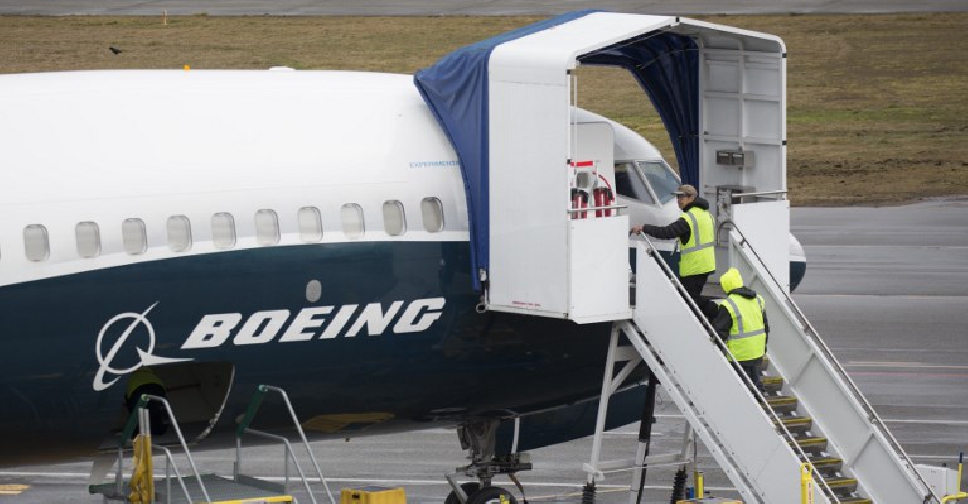
Boeing launched a stock offering that could raise up to $24.3 billion as the planemaker looks to strengthen its finances squeezed by a more than six-week strike by factory workers and preserve its investment-grade credit rating.
The move will boost Boeing's battered finances, which have worsened since roughly 33,000 of its workers represented by the machinists union walked off their jobs in September, halting production of models including its cash-cow 737 MAX aircraft.
The company said late on Monday it was offering 112.5 million shares in common stock, up from 90 million announced earlier in the day, and $5 billion in mandatory convertible securities.
"The offering is certainly favorable for credit quality. We'll factor it into our assessment of the rating in the context of continued negative free cashflow," said Ben Tsocanos, aerospace director at S&P Global Ratings.
Boeing has never fallen below the investment-grade rating.
The planemaker said it had priced its stock offering at $143 per share, a 7.75 per cent discount to its close on Friday, before the deal was announced. Boeing shares closed 2.8 per cent lower at $150.69 on Monday.
Excluding options for the underwriters to purchase additional shares and securities, the offerings would raise about $21.1 billion, Boeing said.
A capital raising is essential for Boeing to preserve its investment-grade credit rating. Rating agencies have warned that a prolonged strike may lead to a downgrade in the planemaker's credit rating, likely pushing up the cost of capital.
The planemaker was already reeling under a regulator-imposed cap on production of its MAX jets after a January mid-air panel blowout.
The combination of labor woes and its production problems have caused it to burn cash in the last three quarters. Last week, the company reported a $6 billion third-quarter loss and said it would burn cash next year.
The same day, striking workers rebuffed an improved contract as it fell short of their demands of a 40 per cent wage hike and restoration of a defined-benefit pension plan, which Boeing is unlikely to reinstate.
The strike is costing the company more than $1 billion per month, according to one estimate that was released before Boeing announced it would cut 10 per cent of its workforce.
Boeing this month entered into a $10 billion credit agreement with banks and announced plans to raise up to $25 billion through stock and debt offerings.
S&P warned of a ratings downgrade if Boeing's cash balance fell below a $10 billion target or if the company had to increase leverage to meet debt maturities.
Boeing had cash and marketable securities of $10.50 billion as of September 30.
It has $11.5 billion of debt maturing through Feb. 1, 2026, and is committed to issuing $4.7 billion of its shares to acquire Spirit AeroSystems and assume its debt.
Reuters had reported this month Boeing was examining options to raise billions of dollars through a sale of stock and equity-like securities.
Boeing said on Monday it intends to use proceeds for general corporate purposes, which may include paying off debt.



 Nasdaq set to confirm bear market as Trump tariffs trigger recession fears
Nasdaq set to confirm bear market as Trump tariffs trigger recession fears
 Dana Gas and Crescent Petroleum exceed 500M boe in Khor Mor field
Dana Gas and Crescent Petroleum exceed 500M boe in Khor Mor field
 China to impose tariffs of 34% on all US goods
China to impose tariffs of 34% on all US goods
 Shares bruised, dollar crumbles as Trump tariffs stir recession fears
Shares bruised, dollar crumbles as Trump tariffs stir recession fears
 Wall Street futures sink as tariffs fuel recession fears
Wall Street futures sink as tariffs fuel recession fears



